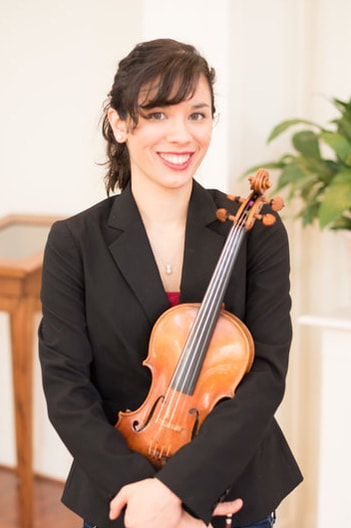As a teacher, I know that my main job with a young beginner is to instruct the parent. Often, parents apologetically say to me, "I have no musical talent." And I say to them, "That's okay!" Because it is. It is really okay that you don't have a musical background. There are plenty of things you can do to create a home environment that nurtures your child's musical ear and creativity. Here are some of them:
1. Have music on in the home and on the go. Switch your car radio to the local classical station (90.9 FM, if you're in the DC area). Stream it online. Ask your child's teacher for some of their favorite composers and look them up on an online streaming site. Many public libraries now have online access to streaming music - check out yours! This doesn't have to be serious "It is now time to listen to classical music" time. Just turn on the radio, find some CDs, go on a little violin-themed iTunes shopping spree, and fill your house with music!
2. Go to concerts. Go to concerts. Go to concerts. Check out the Concert Attendance page of my studio website for a list of venues and groups in the DC and Northern Virginia areas. Going to concerts doesn't have to break the bank! There are plenty of free concerts available. And in my studio, going to two or more concerts a semester will get you one discounted lesson. Going to LIVE concerts is so unbelievably important. Your kids will love it. You will love it. Your kids will get to watch professional musicians at work. You'll experience sound in a completely different way. This can become a great thing for your family, if it is something you enjoy doing together. Some of my favorite childhood memories are of going to the Kennedy Center (by the way, they have free concerts there EVERY DAY at the Millennium Stage) with my parents. Concert tickets can also make great birthday or holiday presents. So I repeat: Go to concerts. Go to concerts. Go to concerts.
3. Find a good teacher. You might not be sure your child wants to pursue music seriously. Your child might not know if they want to pursue music seriously. And that's okay. But a good teacher is a must and a very worthy investment. The right teacher will give your child the fundamental skills that they need to have whether they go on to become a professional musician or whether they just want to have the joy of really playing an instrument well. Also, your ears will thank you, as the child with a good teacher will likely produce a better sound on their instrument than the child who experiments unaided.
4. Trust that teacher once you find them. Trust that they know how to teach violin and help support them as they teach your child. In violin, we learn certain skills in a certain order, and a little impatience is expected. However, it's important that you, as the parent, help your child understand that they need to master one skill to their teacher's satisfaction before they will learn a new one. If your child throws a temper tantrum because their teacher hasn't let them go on to Lightly Row and insists that they play all the Twinkle variations with their violin tall and their pinky curved first, then please support the teacher. I promise: your child's violin teacher wants your child to advance just as much as you do.
5. Enable your child's practicing. Create a space for them in your home that is exclusively for their practicing, and make sure all family members know not to intrude during that time. Gently remind your child to practice from time to time. Parents of children from ages 3 to 10 or so should be practicing WITH their child or at the very least overseeing that practice time. Make sure there is time in their schedule for practicing. Some students are in so many different activities and they come into lessons and tell me they only have time to practice a few days a week. While I do respect every family's schedule, it's also a simple fact of violin life that the more consistently you practice, the more progress your child will make.
Also, make it possible for your child to practice even when they have friends over for playdates - suggest that their friends watch television for half an hour, or have your child play some of their pieces as a mini concert. It's also important to take the violin with you on extended vacations if your child is really quite serious about playing. It's okay to leave the instrument for a weekend trip, but for longer vacations, it's important for them to keep practicing, even if it's just for fifteen minutes a day.
6. Be interested in the learning process. Attend lessons with your child while they're young and, once they become a teen and a more independent practicer, engage them in conversation about their lessons. Ask what they learned, and how the teacher is working on it. I find that students with parents who take an active interest in their music-making make faster progress and have more success than students with parents who just drop them off once a week.

 RSS Feed
RSS Feed